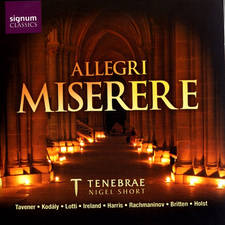Music for babies: advice from Dr Rob Hicks
Everyone has favourite pieces they enjoy and turn to when a helping hand is needed. Just as music “does it” for us, it can do the same for our children too. Dr Rob Hicks explains how classical music plays an important role in your child's development.
Dr Rob Hicks: "Music is all around rewarding us in so many ways. At one end of the scale music is energising, at the other end of the scale it can help to calm the most stressful situation. Music plays an important role in all aspects of a child’s development. It’s now clear that babies in the womb respond to music. Once a baby is born music can help the process of bonding. As your child grows music plays an integral part of games and other activities and the learning that these can provide.
We know that adults nurture the development of their children and the children they care for by responding to their needs, and when a child is enjoying him or herself and having fun they will be learning. For music to be able to influence children all that’s needed is for it to be played. Then just sit back and enjoy it, and relax in the knowledge that you’re doing your best for your children. "
Classical music aids development of the baby in the wombs
It’s established that when a baby is in the womb and is exposed to music they can remember this music after they are born. Studies suggest that playing music to a baby in the womb, and in early childhood years, helps brain development. Some believe that exposure to music whilst in the womb also contributes to increased intellectual ability. However, others question this and the subject remains controversial. Playing music to your unborn child is certainly not a bad thing so there’s nothing to lose from having the radio or your favourite CD playing classical music. In fact, there’s everything to gain.
Listening to classical music is a good baby calming technique
Lullabies and other tunes have been played to children for many years to lull them to sleep or to simply slow things down a little. Listening to music is a good baby calming technique, whether you are rocking your baby in your arms or swaying to the rhythm. It’s soothing and a wonderful way to bond and interact with your child. Hearing a familiar piece of music can also be very reassuring for a child when, for example, they find themselves in a new environment.
Calming music, such as Stargazer by Patrick Hawes and Beethoven’s Romance No. 2 on the new Classic FM Babies CD, can help a child concentrate during story-time and during quiet playtime. It can also be used during mealtimes to help food find its way into the mouth rather than elsewhere.
If fighting or squabbling over a favourite toy looks like turning nasty a dose of music can help avoid potential blood shed and tears. When a tumble has already occurred music will help to calm and distract a screaming child from the graze or cut whilst it’s cleaned and dressed. In fact, much scientific research has identified that pain and other distressing symptoms can be reduced and kept at bay with the help of music since listening to music promotes the release of endorphins, the body’s own natural pain-killing and feel-good chemicals.
Classical music can help your baby get to sleep
After a fun and tiring day comes the need for sleep, often the greatest challenge of the day for many families. It’s when you need tactics, skill, luck, and a helping hand if you’re to help your baby get to sleep. This is where soft, gentle, and comforting music such as Bach’s Cantana No. 156 - Sinfonia shows its genius. Throughout the day music can play a positive role in enabling a child to become aware of the time of day and can help both the child and their carer maintain, or create, a routine. And we all know how important routine is, particularly when it’s time for bed.
Slower pieces work best for bedtime and for helping to calm things down during rest-time in the day. Lullabies, for example Brahms’s Lullaby, and other tunes have been played to children for many years to lull them to sleep or to simply slow things down a little. This kind of music helps soothe children too and can be very reassuring for them.
Classical music is an ideal relaxing agent for new mums, and dads
Classical music plays a key role in helping us to relax, which is why it’s played in shops, hospitals, and whilst we sit in the dentist’s chair. Looking after children is fun, but it’s exhausting too, and a few minutes break is always welcome. Classical music is an ideal relaxing agent for new mums and dads, and those more experienced parents. It can distract us from everyday stresses and quickly take us to a calmer place where we can gather our thoughts and energy in preparation for the next challenge we face. In this respect it’s far better to nip outside and listen to John Brunning’s Pie Jesu than to light up a cigarette when the children are driving you to distraction!
Classical music can help in the development of new born babies and toddlers
There’s plenty of research showing how classical music has a stimulating effect on the body and mind, which in turn can lead to improved physical and emotional health, and can help the development of new born babies and toddlers.
Listening to cheerful music can stimulate antibody production, the chemicals that fight infection. It may be wise, therefore, to play cheerful music, for example Saint-Saens Carnival of the Animals – Finale, when coughs and colds are circulating.
Research performed in nurseries has found that music played in the background can help pre-school children to have more positive and better social interactions. Research has also identified that playing background music within a classroom environment helps children perform spatial skills better – these include activities such as paper cutting, folding, and intricate puzzles. This musical accompaniment also improves attention span and concentration enabling children to answer more questions correctly. Many believe the development of new born babies can benefit in a similar way. The music played to achieve this needs to have a moderate tempo such as that found in Mozart’s The Marriage of Figaro Overture.
With regards overall health and wellbeing music has a tremendous role to play. Lively music with a good rhythm helps in the development of new born babies, toddlers and pre-schoolers by encouraging movement, which is how children learn and perfect their motor skills. It’s fun to listen to, helps them learn about the world, and makes them feel happy too.
The Mozart Effect - can classical music really boost your child's IQ?
Mention Mozart and children in the same sentence and invariably the response will be “ah yes, the Mozart Effect”. This originated from a small study that concluded listening to only ten minutes of a Mozart piano sonata (Sonata for Two Pianos in D major) temporarily raised the "abstract reasoning" ability of 36 college students to the equivalent of 8 to 9 points on a standard IQ scale. Since that time those caring for children have taken every opportunity to make use of this theory in an attempt to promote their children’s mental ability. In research circles, however, the Mozart effect is not so clear-cut and remains controversial. The reason for this being that other scientists have not been able to reproduce the findings of this initial research, and replication of research is important if it is to be properly established as fact. However, the possibility that Mozart’s music can boost IQ has gained huge support and is still practised and talked about.
Outside the research environment, however, what’s important is if something might help, and doesn’t harm, and those caring for children are not being mislead, why not give it a go? Why not give Mozart a chance to vie with children’s shrieks. In fact, it’s not just Mozart that may help. Beethoven, Schubert, and Bach, amongst others may have an effect too. After all, classical music should first be for pleasure and enjoyment, anything else it brings should be seen as a bonus.
For great advice and tips for every mum and mum-to-be, visit www.babyexpert.com or Doctor Rob Hick's official website at www.drrobhicks.co.uk.









































